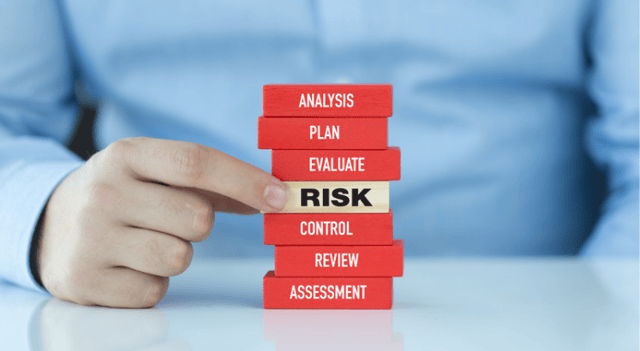Search for topics or resources
Enter your search below and hit enter or click the search icon.
July 5th, 2023
3 min read
By Chris Greene

As a business owner, it is crucial to prioritize understanding commercial flood insurance. Floods can happen unexpectedly and can cause significant damage to your business property, equipment, and inventory.
Without proper insurance coverage, the financial burden of repairing or replacing these assets can be overwhelming and potentially lead to the closure of your business. Recently we saw an investor get more than 9 feet of water in the basement of their apartment.
.png?width=640&height=360&name=YT%20THUMBNAIL%20(46).png)
Commercial flood insurance provides protection against flood-related losses, ensuring that you can recover and continue operations in the event of a flood. By investing in this essential insurance, you are safeguarding your business's future and ensuring its resilience in the face of unforeseen natural disasters. Don't wait until it's too late – in this article, we'll talk about the significance of getting the best flood insurance for your business.
Hey there, fellow property owners and rental superheroes! Today, we're diving into a topic that may not be the most glamorous but is oh-so-important: flood insurance for apartment buildings. Whether you're a seasoned investor or a first-time buyer, having this insurance in your back pocket can save you from potential financial headaches down the road.
So, let's buckle up and learn how to make a splash when it comes to securing the best flood insurance for your precious rental property.
Before you dive into the insurance market, it's crucial to know the lay of the land, or in this case, the flood zone. Each area has its own unique flood risk, which is categorized by the Federal Emergency Management Agency (FEMA). By understanding your property's flood zone rating, you'll have a better idea of the insurance coverage you need. FEMA's Flood Map Service Center and local authorities can provide the information you need to get started.

Understanding flood risks is an essential aspect of protecting your business and rental properties. In this ever-changing world, floods can occur unexpectedly, causing significant damage to your assets. As a business owner or property investor, it is crucial to prioritize commercial flood insurance. By understanding the flood zone of your property, you can determine the appropriate insurance coverage needed. Shopping around and comparing quotes from different insurance providers will help you find the best options tailored to your needs.

Familiarizing yourself with the coverage options and policy exclusions will ensure you make an informed decision. Evaluating deductibles is also important to strike a balance between affordability and potential claims. With the right understanding of flood risks and the proper insurance coverage in place, you can safeguard your business and rental properties from the financial burden of flood-related losses. Don't wait until it's too late - take action now to ensure the long-term success and stability of your business or investment.
Just like with any insurance policy, it's wise to shop around and compare quotes from different insurance providers. When it comes to flood insurance this can be especially important. So many people think the National Flood Insurance Program is the only option. In many situations, there can be more than 20 different private flood insurance options available.
Each one may offer different coverages. Take the time to analyze what each policy covers, the deductibles, and the premium rates. While cost is important, don't forget to consider the reputation and reliability of the insurance company. Seek recommendations from other property owners or consult with an insurance broker to find the best options tailored to your needs.
When it comes to commercial flood insurance, it's crucial to understand what exactly is covered. Most businesses do not open back up after a flood because they did not have the right flood insurance coverage. Most standard property insurance policies do not include flood coverage, so a separate flood insurance policy is necessary.
Familiarize yourself with the difference between building coverage (the structure itself) and contents coverage (personal property inside the building) and (business income or loss of use) Knowing what is covered will help you make an informed decision and avoid any surprises when making a claim.
Just like a hidden rock beneath the water's surface, policy exclusions can sneak up on you. Make sure you read the fine print and understand what is not covered by your flood insurance policy. For example, some policies may exclude coverage for basements or certain types of water damage. Plan ahead and consider additional coverage options if needed. It is important to look at how FEMA defines a flood to make sure you will have coverage. So many times we see people purchase a flood insurance policy not knowing it will not cover the things they are looking for.

For FEMA and the NFIP, some of the exclusions are as follows:
When it comes to flood insurance, the deductible is the amount you must pay out of pocket before your insurance coverage kicks in. While it can be tempting to opt for a higher deductible to save on premiums, make sure it's a financially viable choice for you. A different deductible will generally apply to building coverage, contents coverage, and loss of business income. Balancing the deductible and premium rates is essential to ensure you can comfortably afford any potential claims in the future.
Remember, it's always a good idea to consult with a professional insurance advisor or broker to guide you through the process and ensure you have the coverage you need. Stay dry and happy renting!
If you want to start simplifying your flood insurance, just follow these three steps:
Topics: